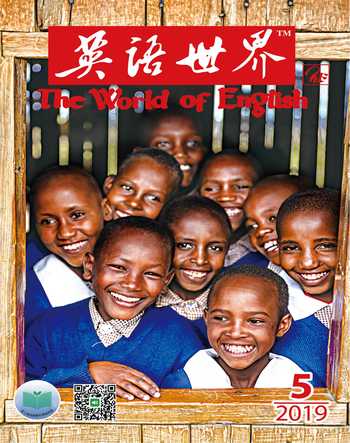文学与政治 Literature and Politics
王鼎钧
文學作品能使大众相信尚未发生之事,秦朝直到始皇帝死亡,并未将阿房宫建成,可是唐朝的杜牧写了一篇《阿房宫赋》,天下后世多少人都“知道”秦始皇在这座庞大奢华的建筑里住了三十六年。
文学作品能使人乐意去做某些事情,“读了《诗经》会说话,读了《易经》会占卦,读了《水浒》会打架”,“读了《红楼》会吃穿,读了《三国》会做官,读了《水浒》想招安”3,诗歌小说都制造欲望和情感,而欲望和情感是行为的动力。
文学有这样的功能,宗教家、资本家、政治家都为之倾心,这三种人物都希望大众相信他描述的尚未发生之事,因而改变了行为。文学家与这三种人合作由来已久,他们跟政治家合作的经验最不愉快,宗教家、资本家手中只有软性的权力,对作家只能动之以利或动之以义,政治家手中有硬性的权力,对作家可以胁之以势,继之以迫害。
还有,资本家比较老实,他摆明了为的是自己的利益,他对消费者“只能夸大,不可欺骗”。宗教信誓旦旦为了别人的利益,如果欺骗,他的骗局在世界末日来临之前不会被揭穿。政治呢,他实际上也许是资本家,文学把他化装成宗教家,既夸大又欺骗,要命的是真相“立即”大白,作家陷于尴尬之境,既难自解,又难自拔。
有些作家誓言与政治绝缘,这又如何办得到?文学表现人生、批判人生4,而政治管理人生、规划人生5,这就难分难解。日出而作,你要坐地铁;日落而息,你要找停车位;掘井而饮,你要自来水中没有大肠菌;耕田而食,你要青菜没有农药;帝力何有于我哉,经济海啸来了,你得靠政府发失业补助金。你表现人生就看见了政治,你批判人生就褒贬了政治6。
还有,你需要创作自由,你的版权需要保护,你的销路、你的读者的购买力需要经济政策成功。“独坐幽篁里,弹琴复长啸”,需要警察维持治安,没有人闯进来搜你的口袋。莲花出淤泥而不染,那是莲花高洁,可是如果没有淤泥中的营养和水分?7……作家应该厌弃的是独裁者而非政治,独裁者和政治并非同义。如果请他到相关部门领演出补助费,他欣然前往,如果劝他投票,他断然说我讨厌政治,这是很奇怪的思维。当然,故意混淆可以规避社会责任,那是聪明过人。
再说政府应该了解,“文章华国”并非说它是政权的装饰,而是说它是国家的光环,能在世界上增加国家的知名度和吸引力,引世人尊敬和向往。小小丹麦出了个安迪生,就在全世界儿童的精神领域成为泱泱大国。文学文艺使穷人变富人,使富人变贵人,使贵人变圣人,促进人民的精神生活,提高国民语言水平,即使骂人也骂得有风格。不要把文学看成海报标语,可以一夜贴满大街小巷,一夜又撕去。文学家是没有用的人,但“无用之用大矣哉”!优秀的文学作品是国家民族的文化遗产,一个负责任的政权一定有心给后世留下这一类东西。
Literature creates a world of make-believe. Thus2, even though the construction of the Epang Palace was never completed during the reign of Qin Shi Huang, the first emperor of a unified China, a widespread belief persists generation upon generation that his majesty lived in this sprawling, super luxurious palace complex for 36 years. That’s because Du Mu, a famed Tang Dynasty poet, claimed so in his Ode to the Epang Palace.
Literature is an enabler. Reading The Book of Poetry improves our ability to express ourselves. The Book of Changes teaches how to practice divination. Outlaws of the Marsh acquaints us with stratagems to beat or coopt our opponents. The Dream of the Red Chamber cultivates a refined taste in life. The Romance of the Three Kingdoms braces us for a power struggle. In a word, novels and poems create desires and emotions, which motivate action.
Possession of such functions makes literature appealing, especially to spiritual masters, business tycoons and politicians. They all want to coopt the literary medium to induce the populace to believe their predictions, and to influence its behavior. Their engagement with men of letters has a long history. The most unpleasant has been the interaction between literary creation and political power. While spiritual masters and business tycoons can only rely on their soft power, such as presumed morality or money, to exert influence, men in power could come down hard on literary writers. Persecution often follows on the heels of threats.
By comparison, businesspeople are more honest. They don’t attempt to hide the fact that they are looking to boost their own bottom lines. When they peddle products to consumers, they know deception will eventually backfire, even though some exaggeration could be fine. Religious gurus claim they are serving others’ interests, and they know that their lies won’t be exposed until the Day of Judgement. Those in power might also be tycoons, but they are disguised through literary interventions as moral leaders. They resort to both exaggeration and deception. The problem is, however, that the truth comes out relentlessly fast, throwing window dressers into the abyss of shame, leaving them unable to justify their action or extricate themselves.
Some writers have pledged to stay away from politics. But how could that be possible? Literature reflects or reviews our life experiences, and politics influences our decisions to manage and plan our lives. Literature and politics are therefore inseparable. Indeed, every mundane concern is inextricably fused with a political dimension: your morning subway commute, your hunt for a parking spot after work, your worries about possible E. coli contamination in tap water or pesticide residues in vegetables, or the onslaught of an economic tsunami, triggering the need for reliance on government unemployment benefits. Telling a life story leads inevitably to revealing ramifications of political decision-making. A critique of everyday life cannot eschew judging the merits of government policies, however obliquely.
Besides, you need freedom to write; you want strong copyright protection; and you pray for successful implementation of economic policies to create greater prosperity, so as to boost your readers’ purchasing power and your book sales. Even when you enjoy the solitude of singing and playing a musical instrument alone, you need police to keep your neighborhood safe, so that no one will break in to ask you to hand over your wallet. Even when you imagine yourself to be a lotus flower that has sprung out of the mud, you should not forget that an elegantly spotless flower thrives on the nutrients and water in the mud. For writers, the object of detestation should be dictatorship, rather than politics in general. While many writers are happy to collect government subsidies for staging their creations, they are loath to vote, citing their aversion to politics. This reveals a strange mindset. It’s, of course, also a way to shun your social responsibility by deliberately mixing up different concepts. That’s too smart.
On the other hand, “literature brings glory to a nation,” as an old saying goes. Government officials should be made aware that this doesn’t mean literature is intended to whitewash a regime’s actions; rather it adds charm to a nation, raising its profile, enhancing its appeal, and inspiring respect and appreciation globally. Thus, thanks to Hans Christian Andersen’s fairy tales, tiny Denmark occupies a hugely important place in the world of children’s literature. Literary creation empowers the poor, guides the rich in their embrace of noble ideals, and prepares the noble to embark on a path to greatness. It improves people’s intellectual wellness, as well as their language ability, so that they know how to show class even in a verbal confrontation. Literary works are not advertising posters that can go up on city streets overnight and can then be taken down just as swiftly. Literature has no practical use. But it can be truly invaluable. Literary masterpieces are gems of a nation’s cultural heritage. A responsible government would go out of the way to encourage literary creation, so that gems can be passed on to future generations.
1本文編选时,对原文有删节。 2 thus用在这里意为for example,是为了更好与上文衔接。第一句话提出命题,下文是举例说明。 3这里分两组描写读书的功用,但两组内容是交叉的,如第一组和第二组都提到《水浒》,这是为了押韵的需要,读起来非常俏皮,这是中文特色语的特有效果。在英语里模仿这一结构恐怕只会弄巧成拙,因为用英语表达时逻辑性更重要,如果两组内容有重叠,就应该结合在一起表达。即使译者使出九牛二虎之力,编出两组押韵不同的诗句,也仍然不是上策,因为在英语里内容安排在逻辑上的合理性压倒了形式上的对称和韵律。
4对于“批判人生”,如果直译成criticizes life,那就会文理不通。我们首先需要把握“批判”的确切含义。其实,“批判”本身就有两种意思:一是对错误的思想言行进行有理有据的分析,从而加以否定;二是(对任何事物的)分析评断。根据本文语境,取第二种解释是恰当的,于是我们可以用review或类似的词语来表示。 5“政治管理人生、规划人生”如果直译成politics manages and plans our lives,也同样不知所云。无法直译时,我们只能转一个弯,看作是对“管理人生、规划人生”的决定的影响。 6这句话也同样无法按字面直译,如果将其译成“If you write about life, you see politics. If you critique life, you praise or disparage politics. ”,那实际上没有表达原文的真正含义,或者说没有表达任何意思。问题在于politics一词的含义太广,既可以指政府政策,也可以指任何人或团体的政治见解及行为等。而本篇上文里使用“政治”一词一般用来指政府活动或政策,为了译文达意,同时便于与文中其他部分照应,也许我们有必要点出内在实际含义,如political decision-making或government policies等。
7 这两句话之间有跳跃,特别是第二句的比喻,如果处理不当,就会显得十分唐突,无法与前后内容照应。中文对跳跃的容忍度较高,跳跃的跨度可以比较大,英文对逻辑连贯性的要求更高,不允许有过大的跳跃,所以笔者在译文里添加了Even when you imagine yourself to be…,使句型与前一句型一致,以便更明显地体现比喻用意所在。

